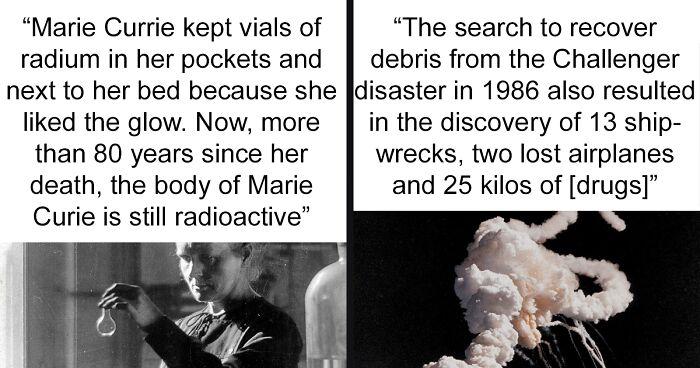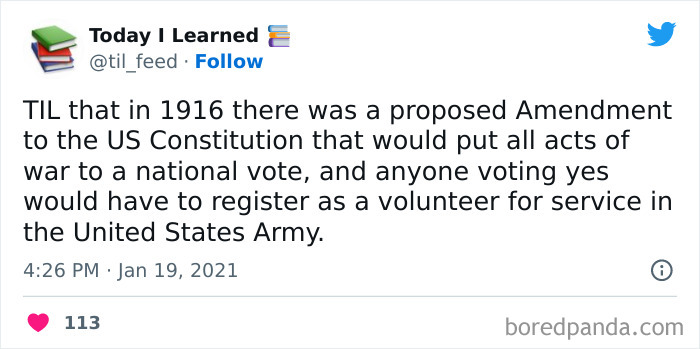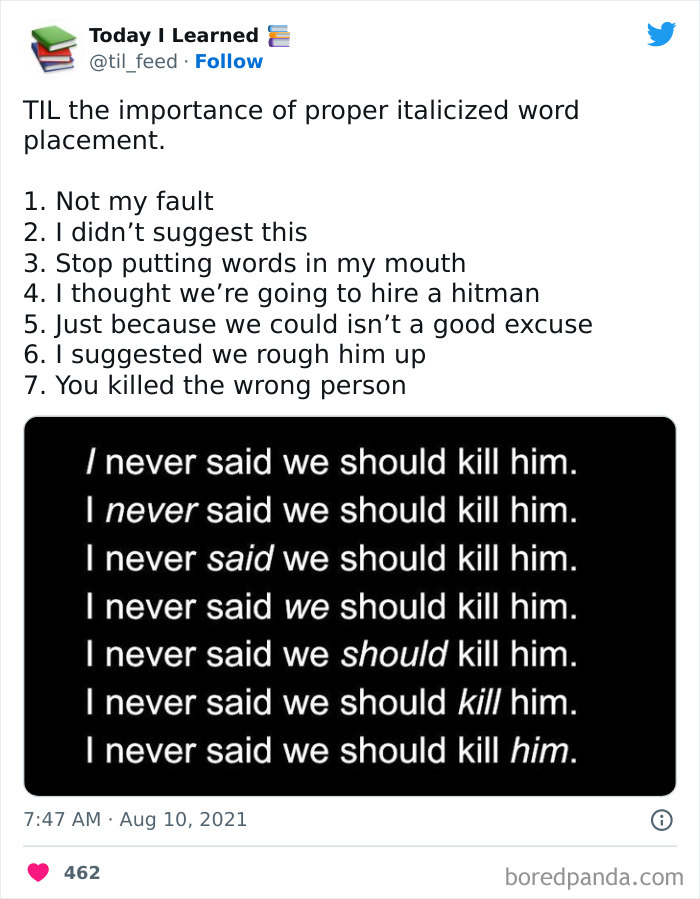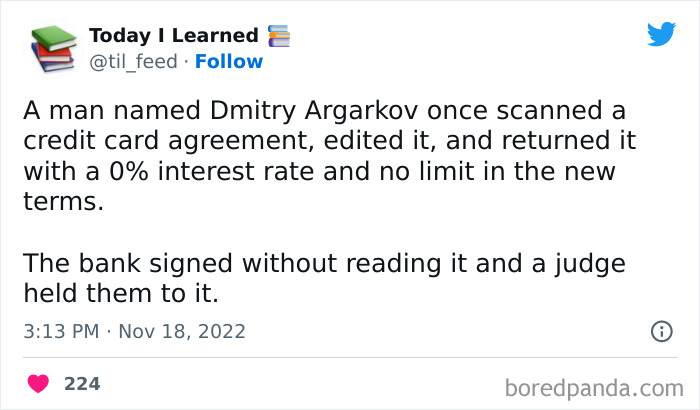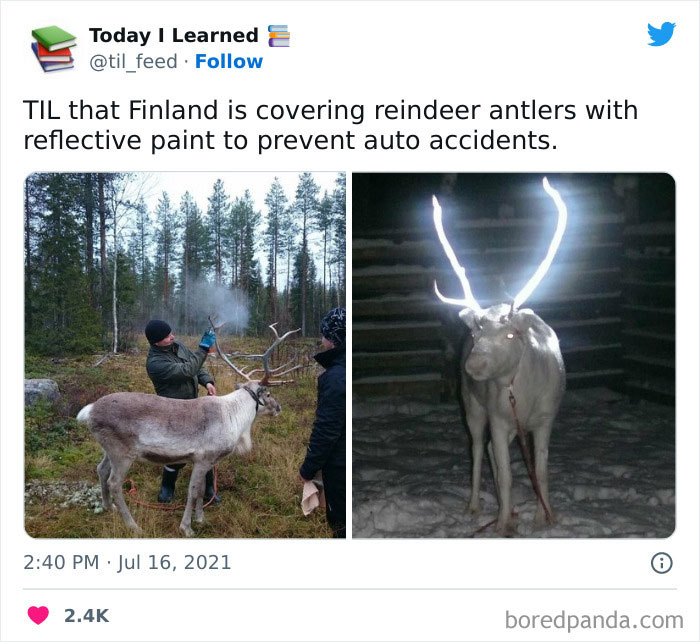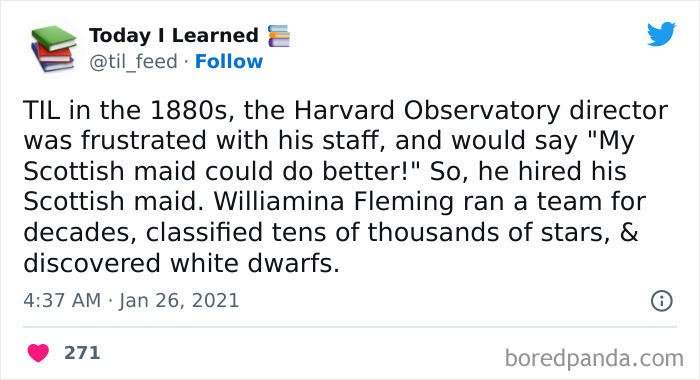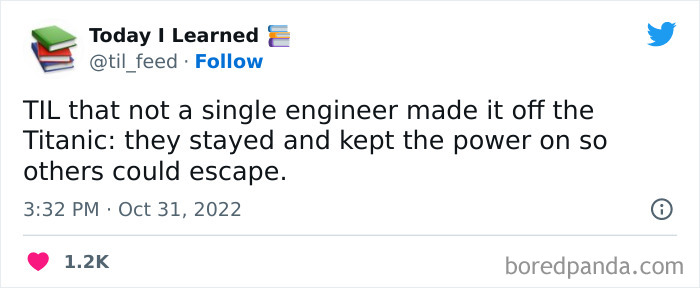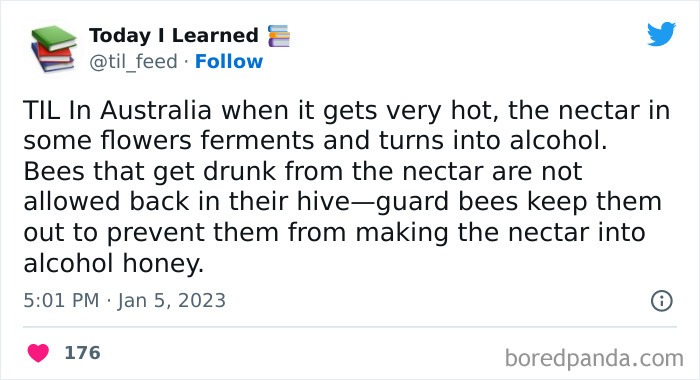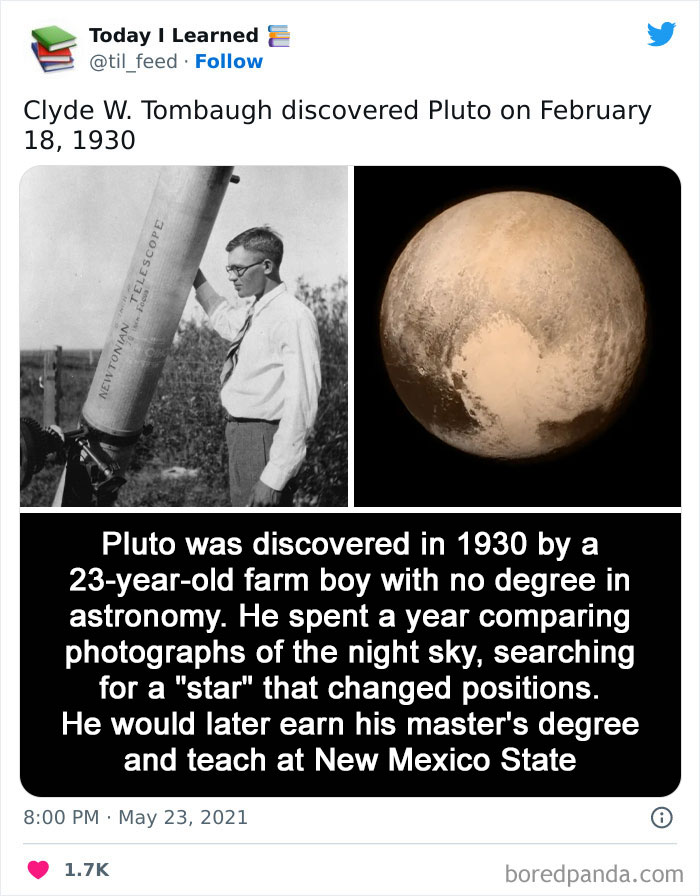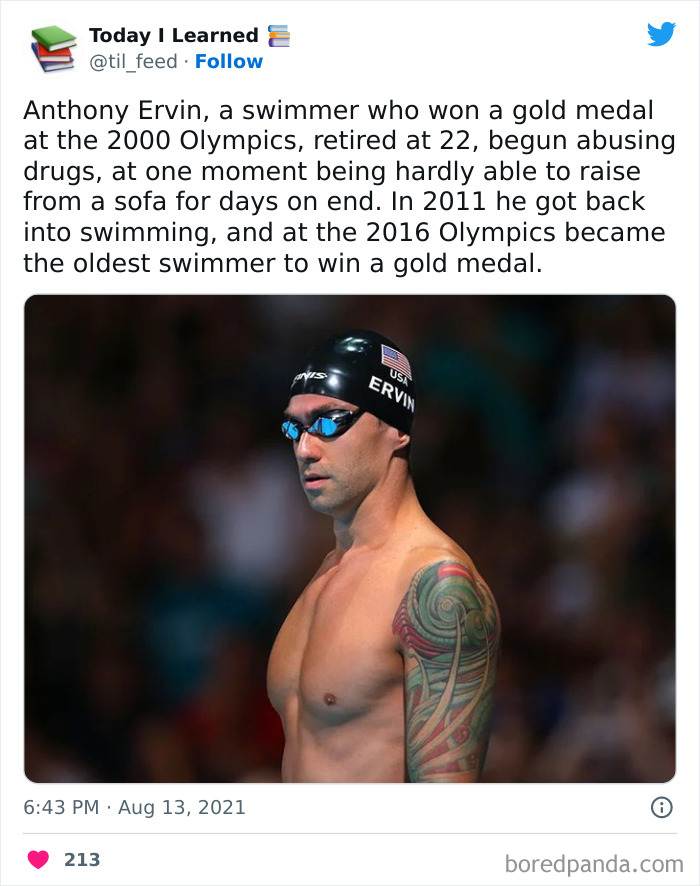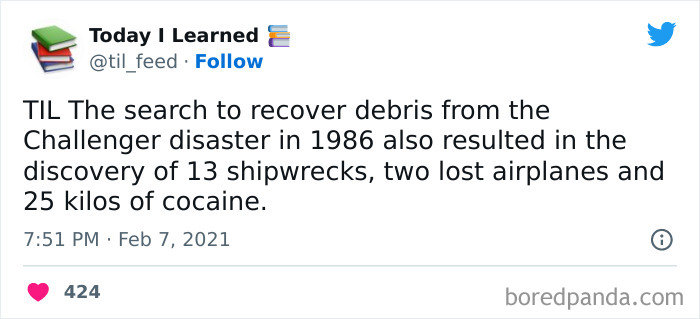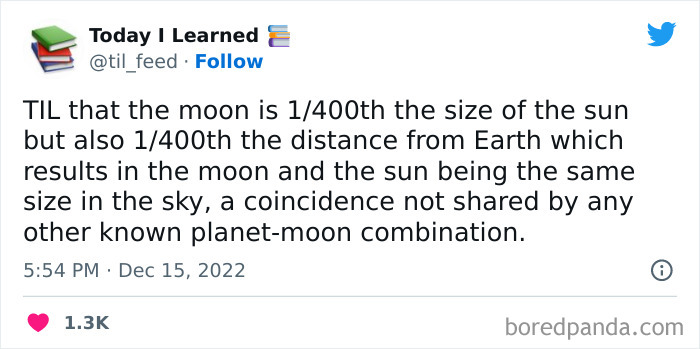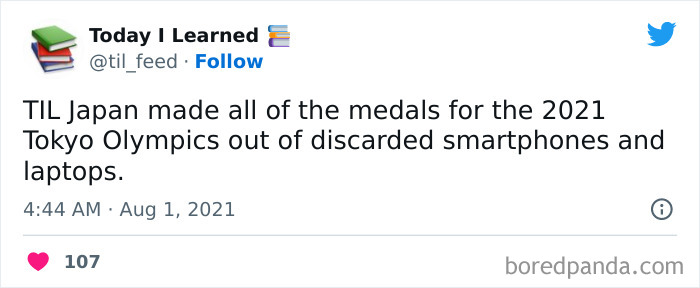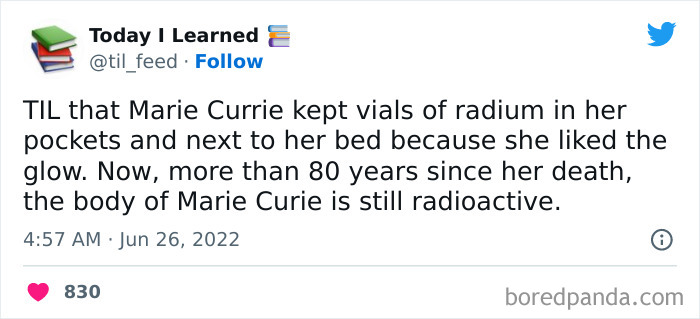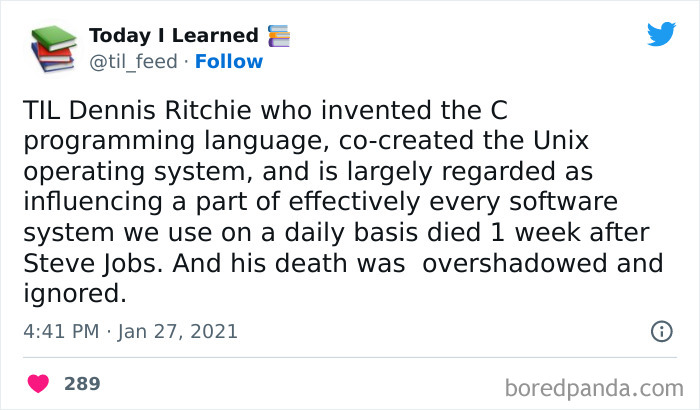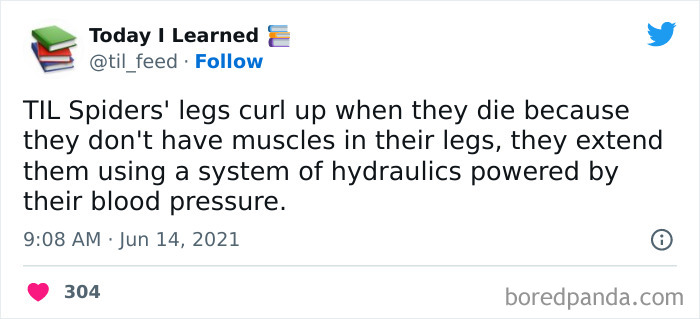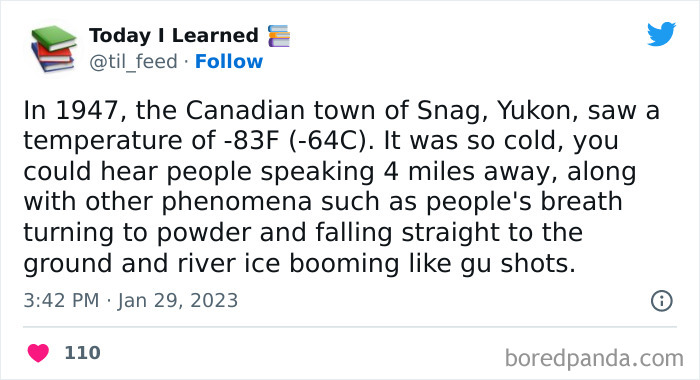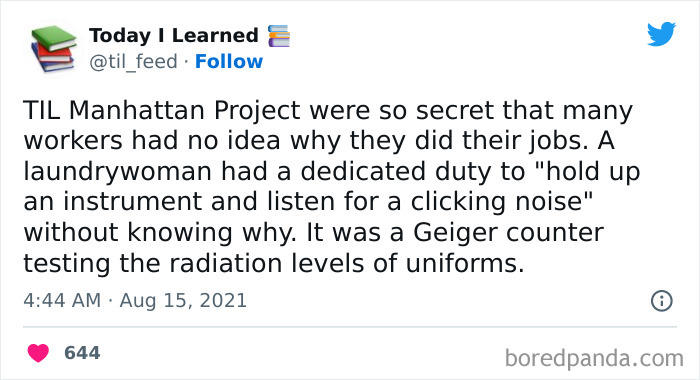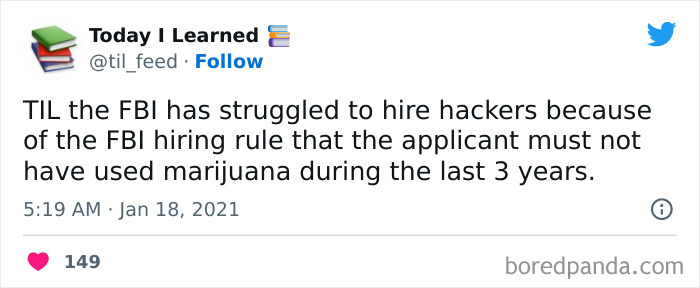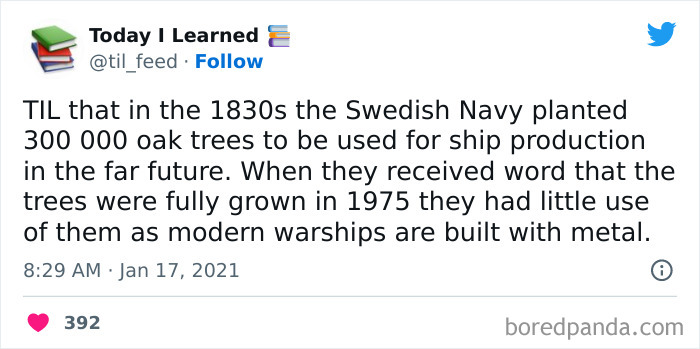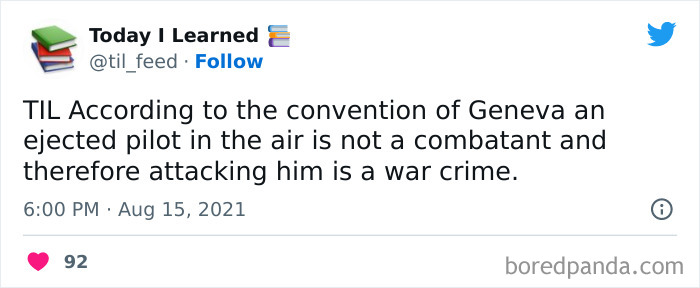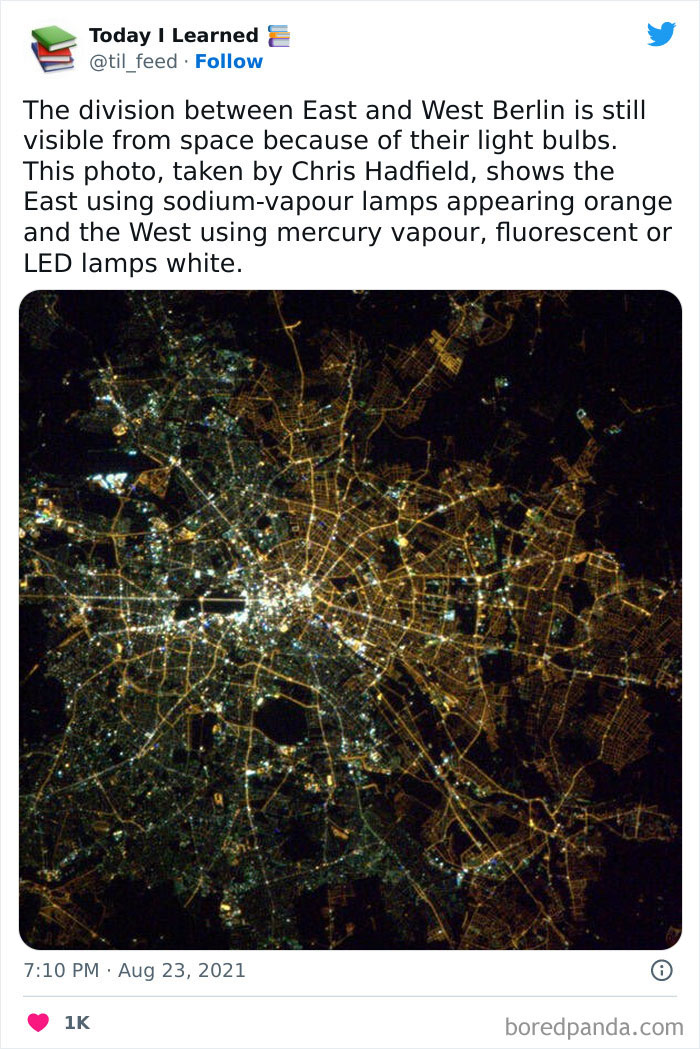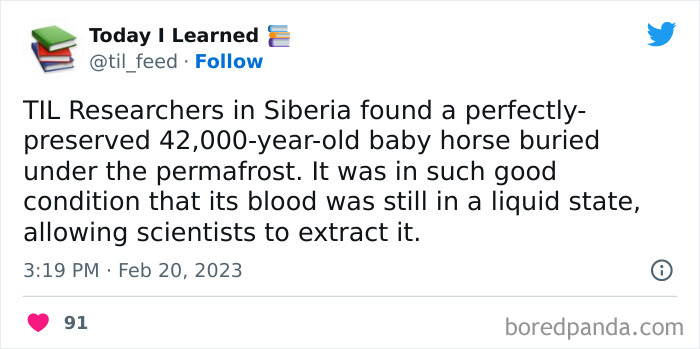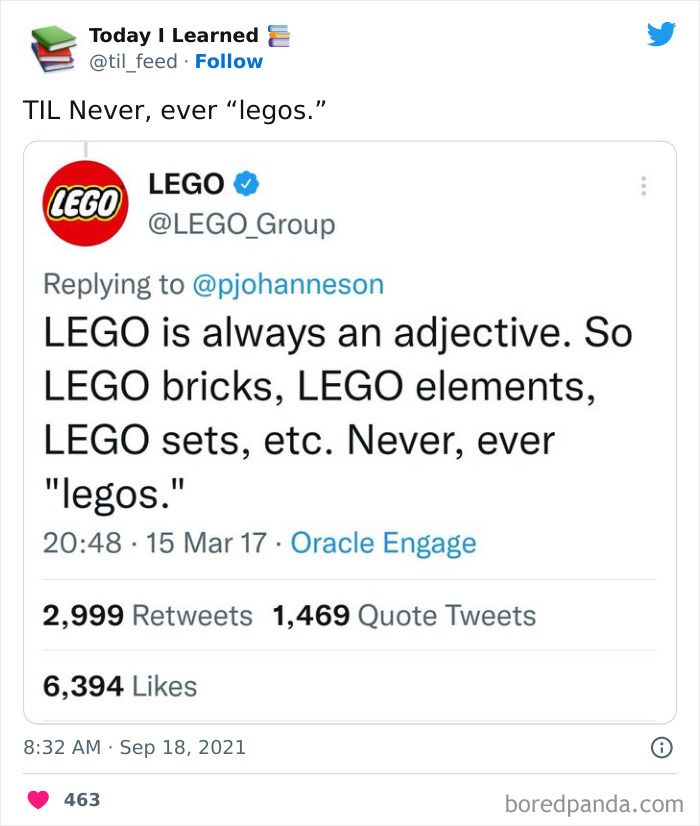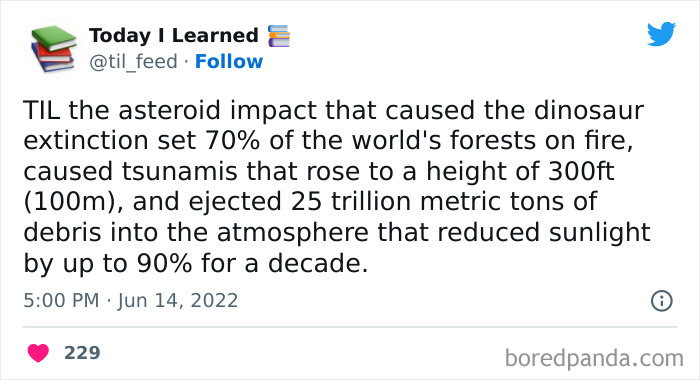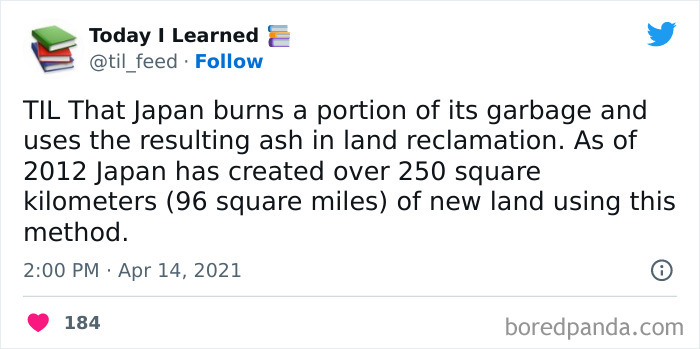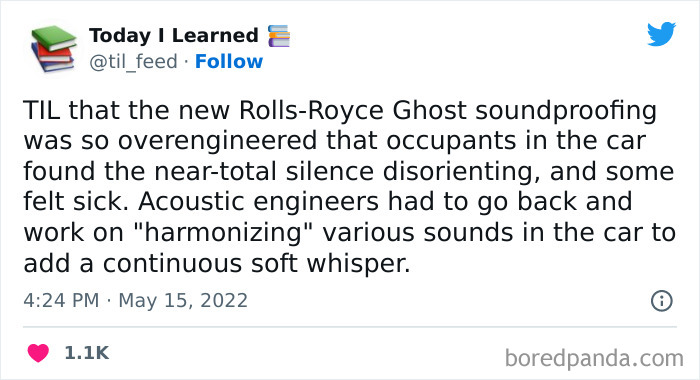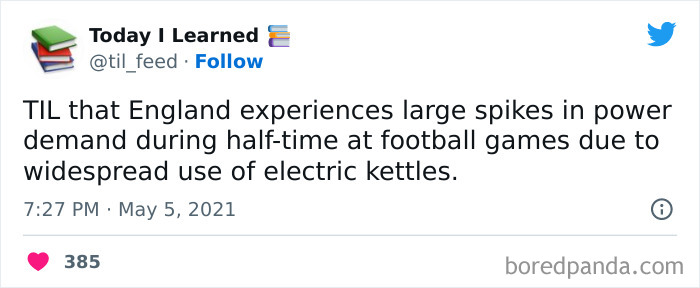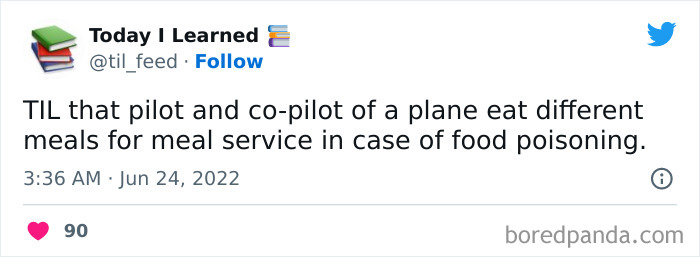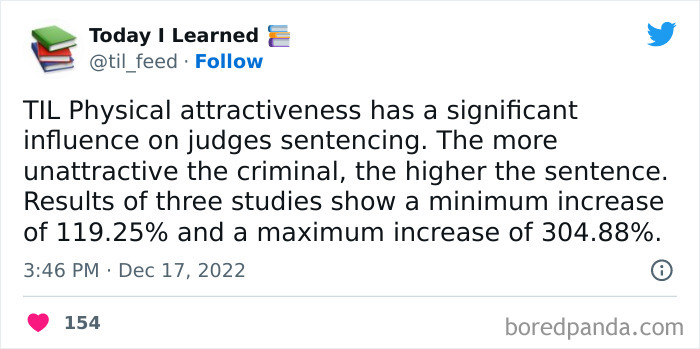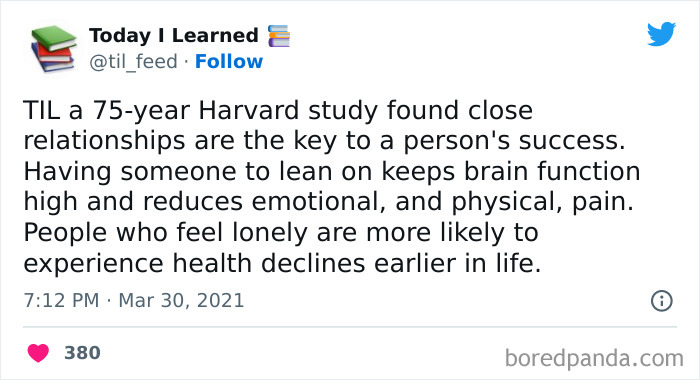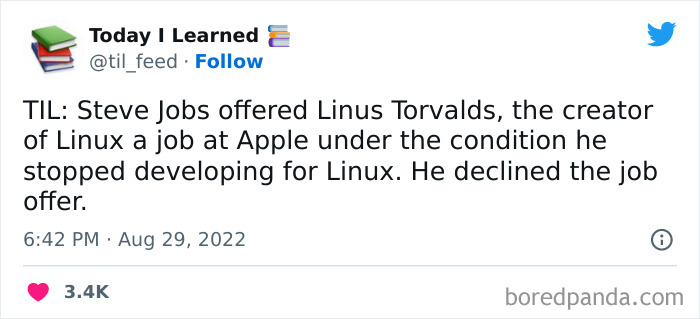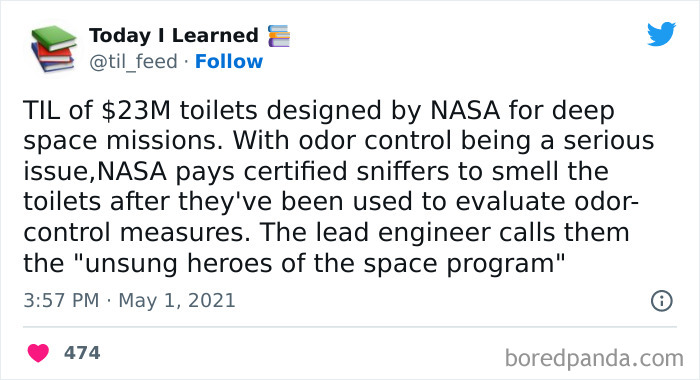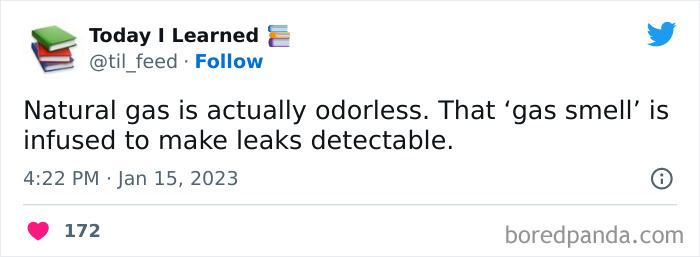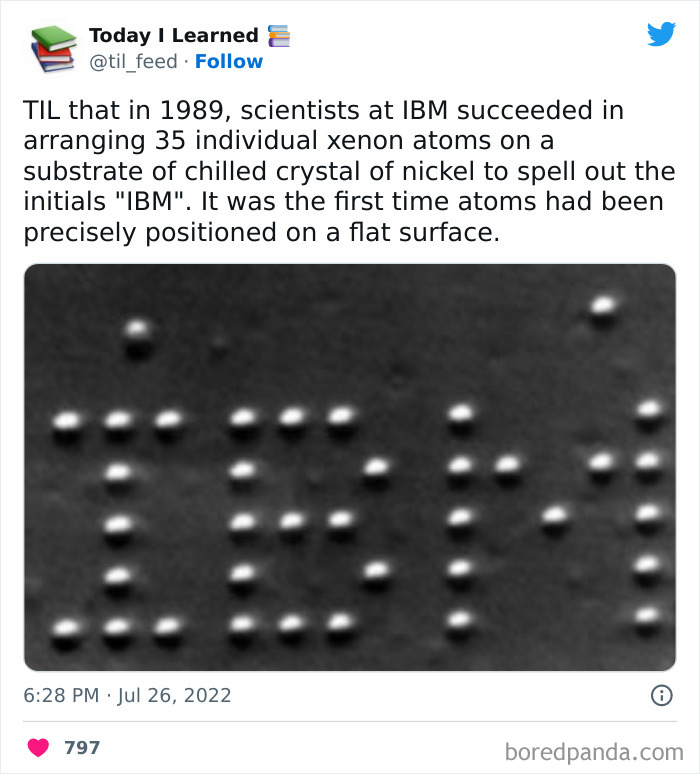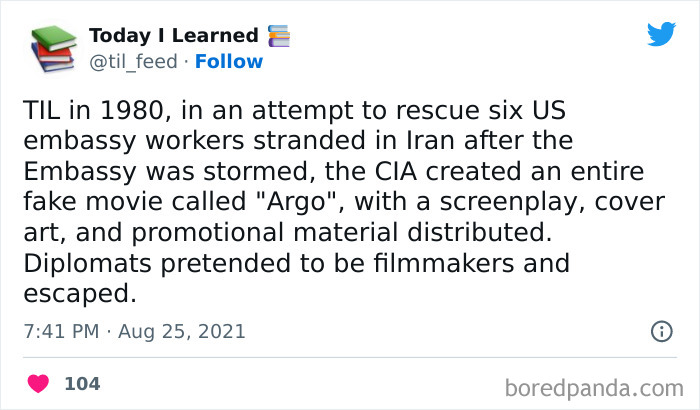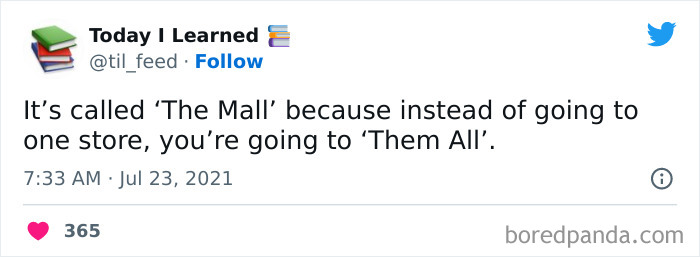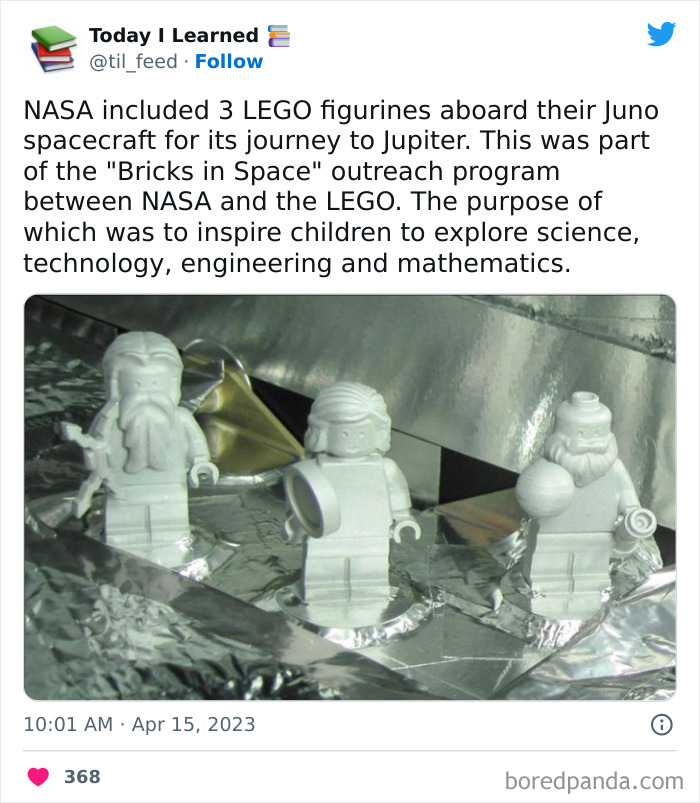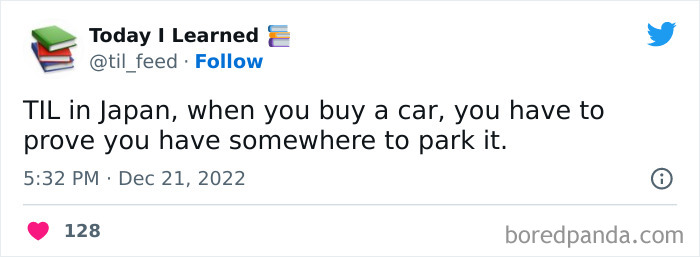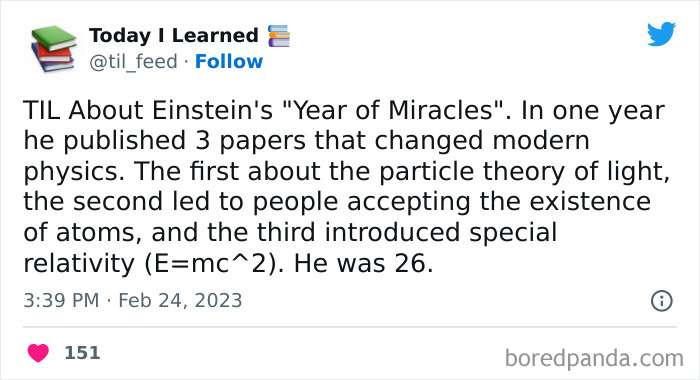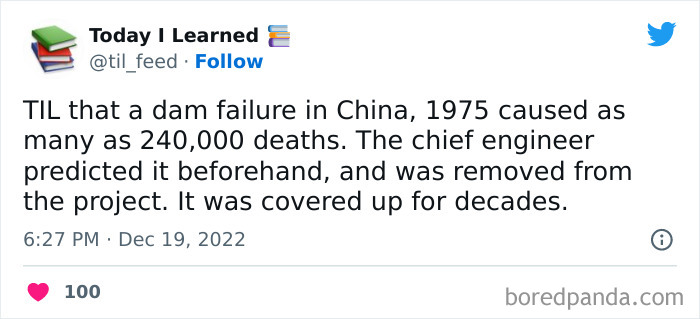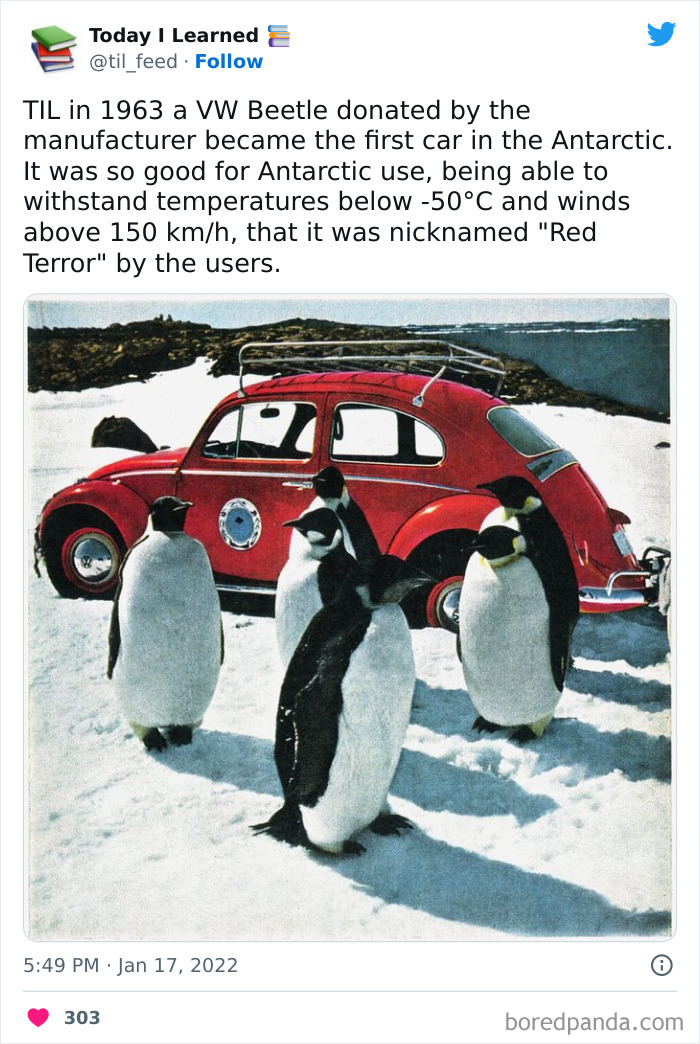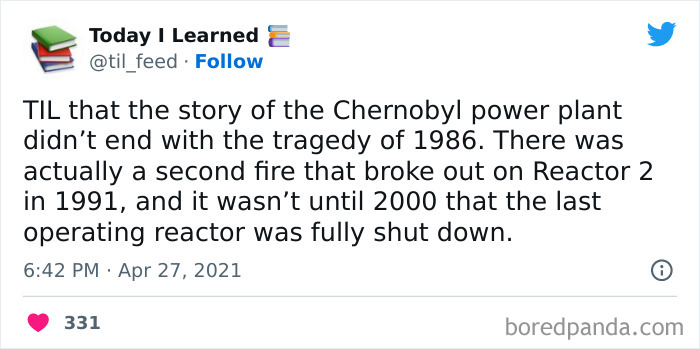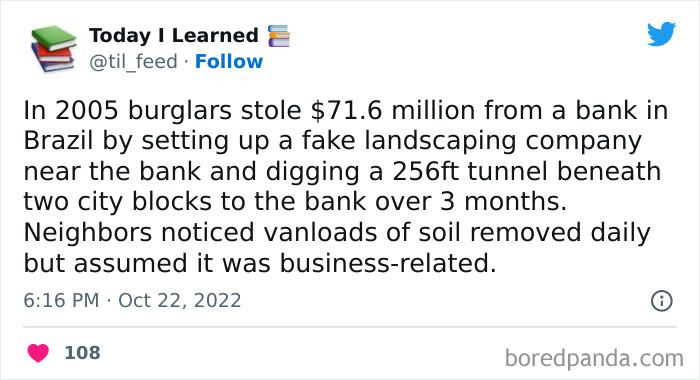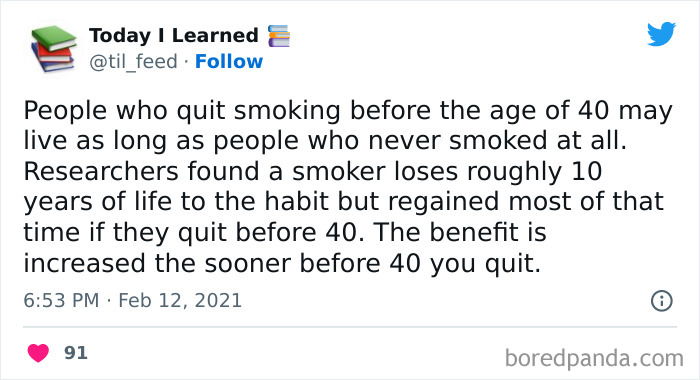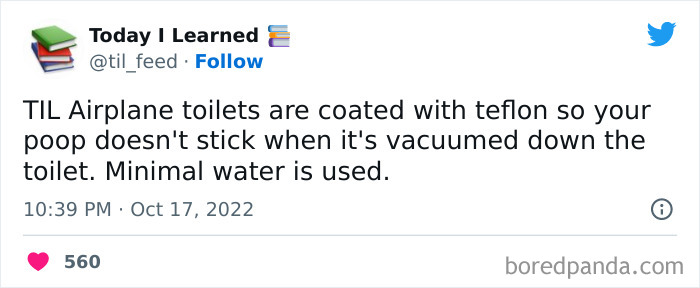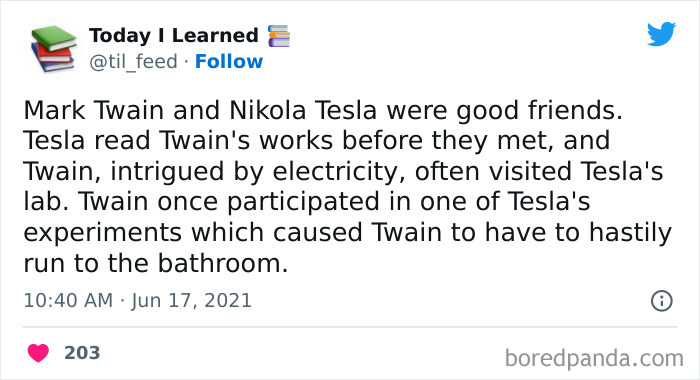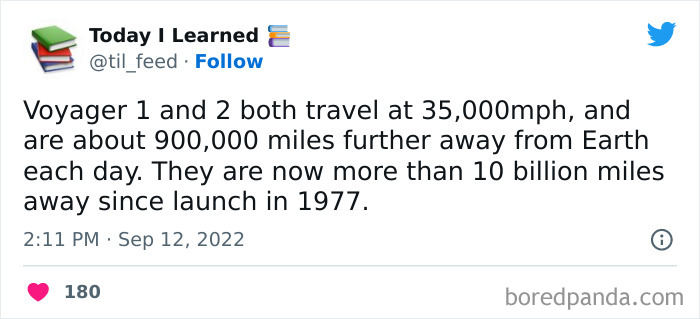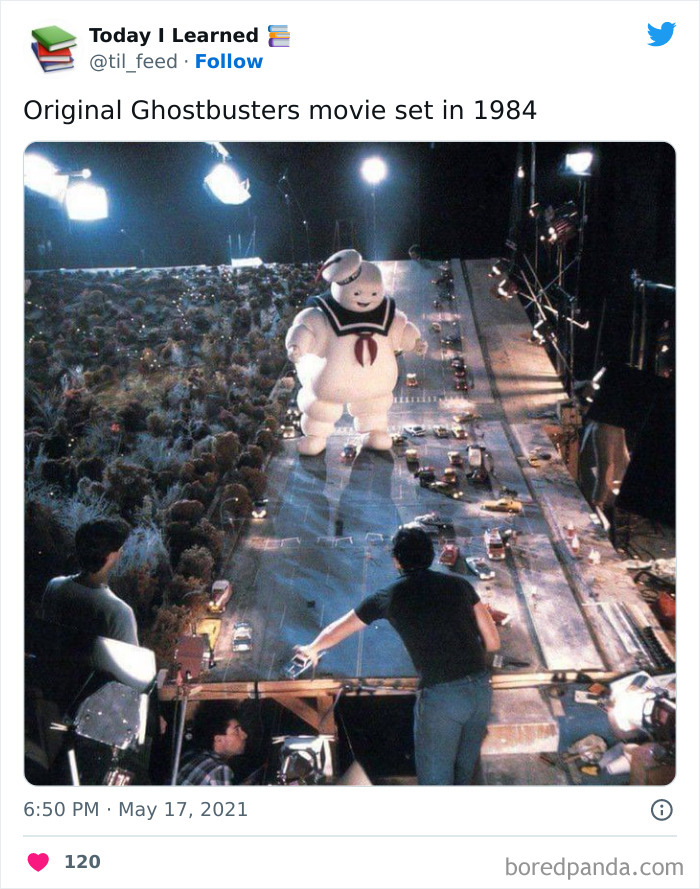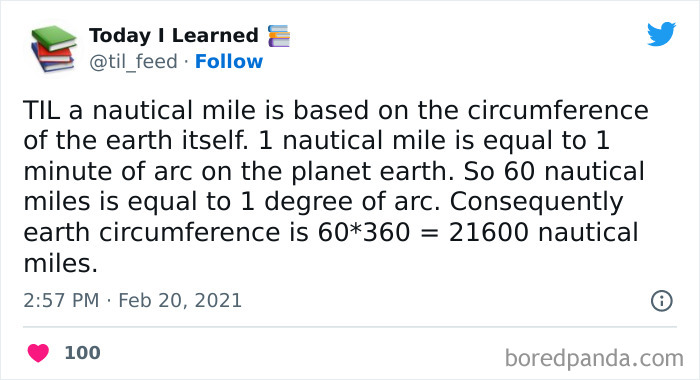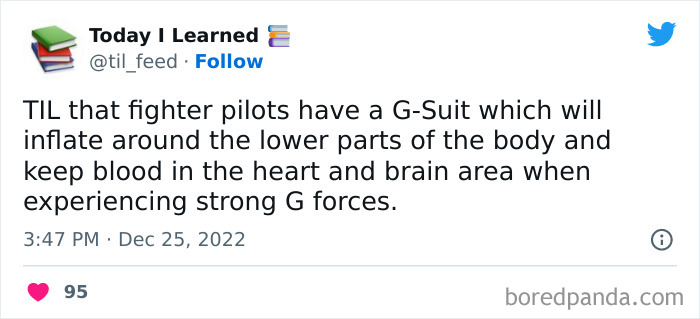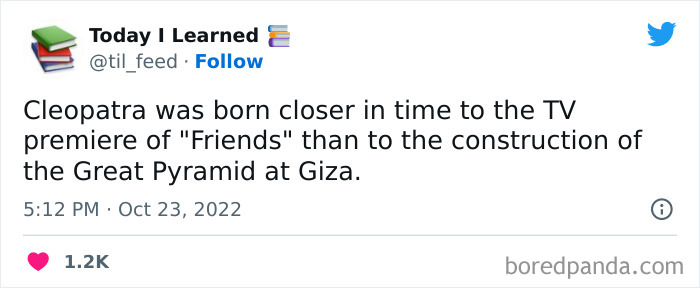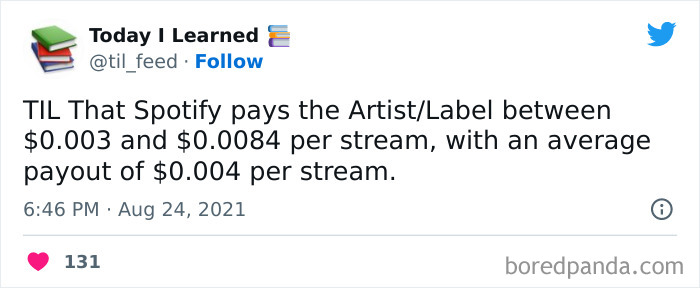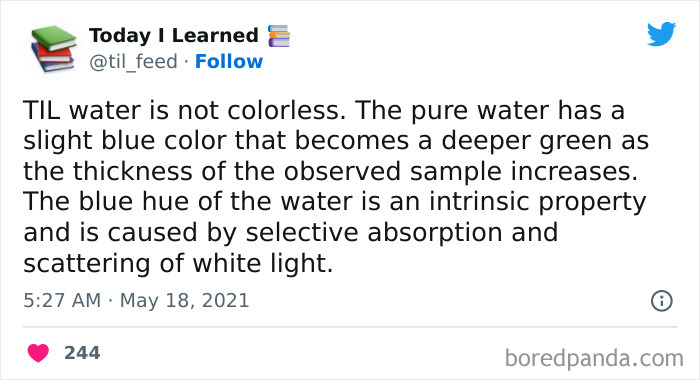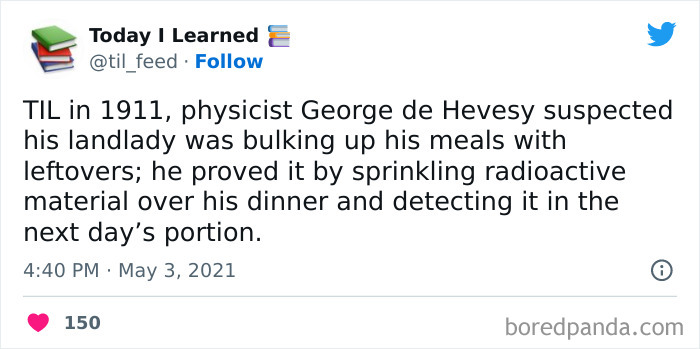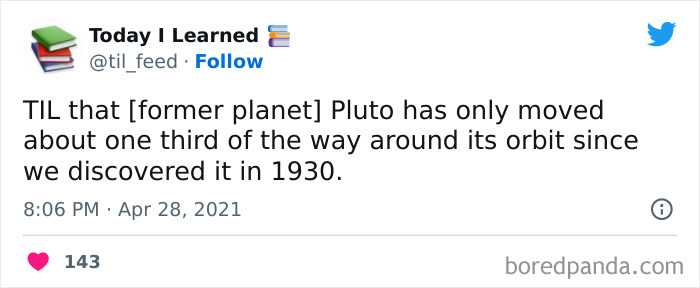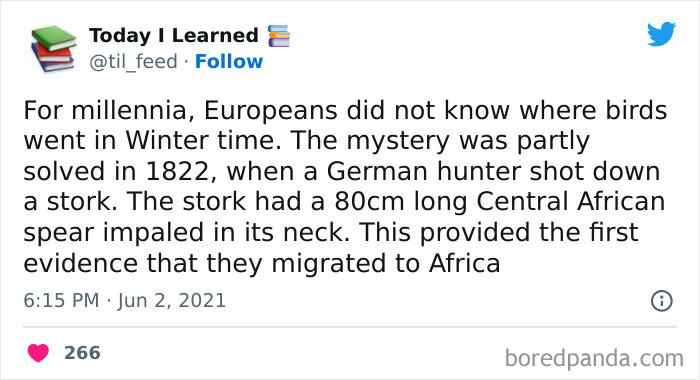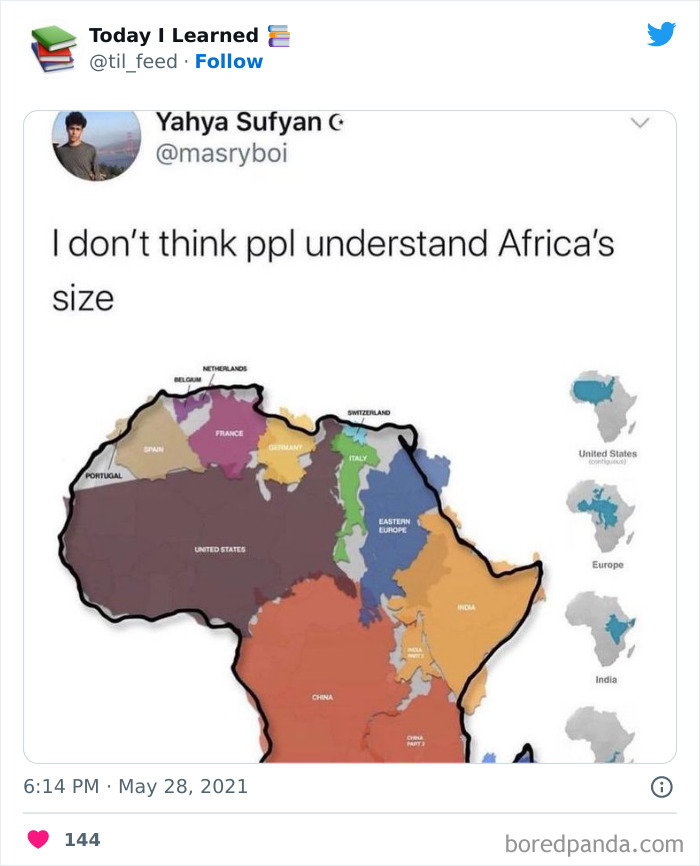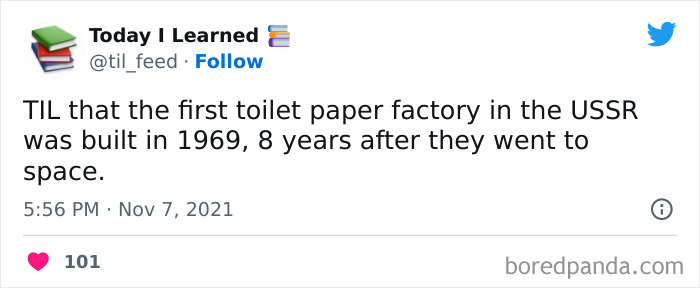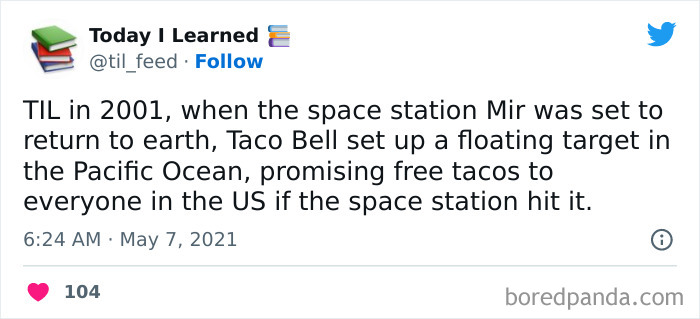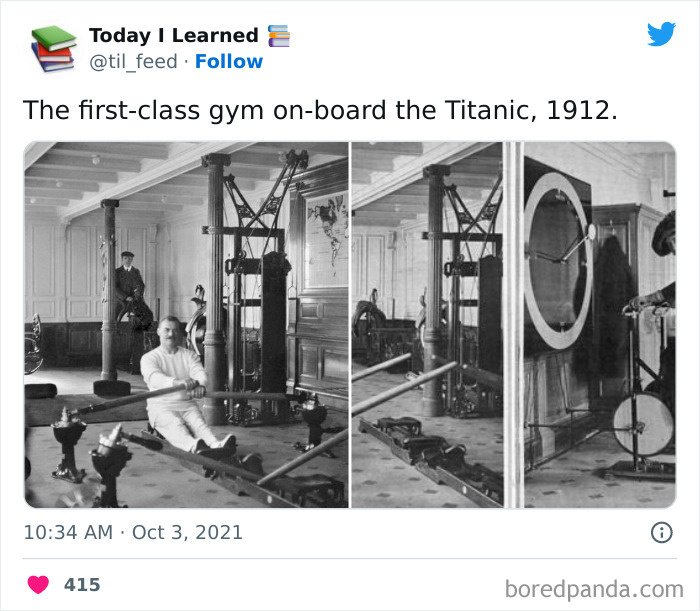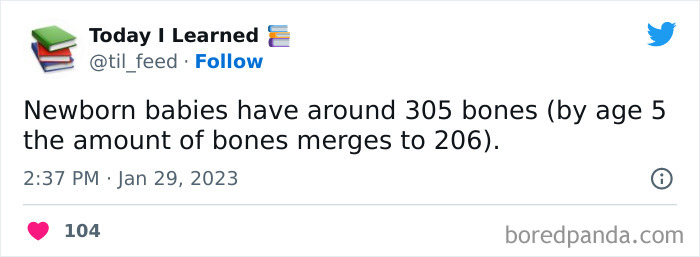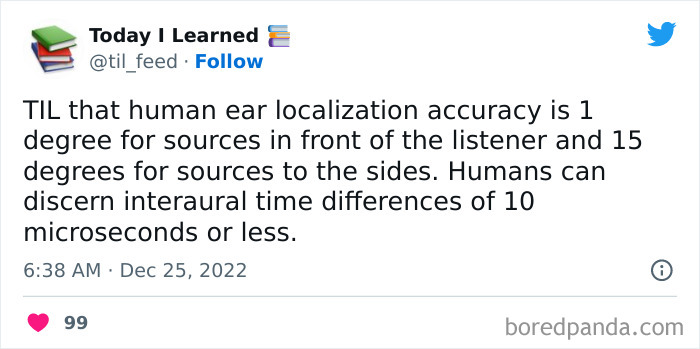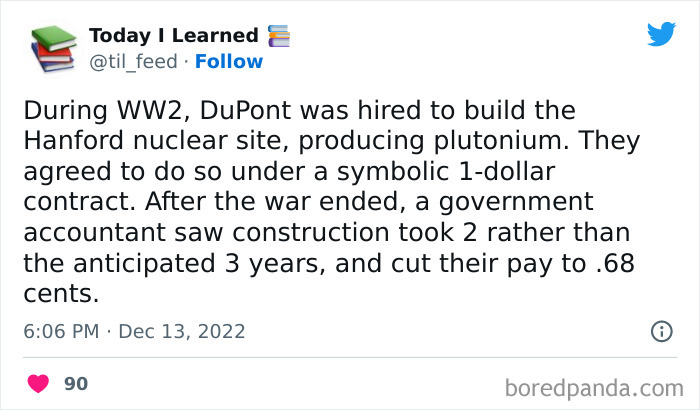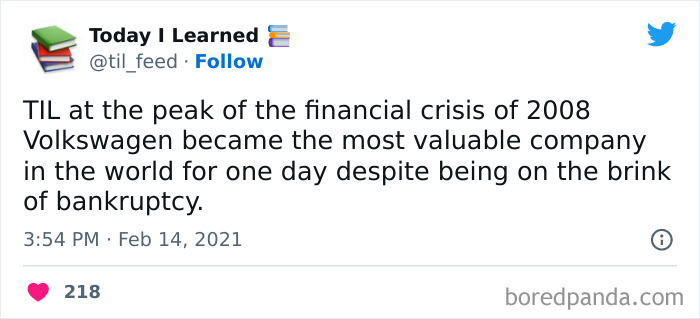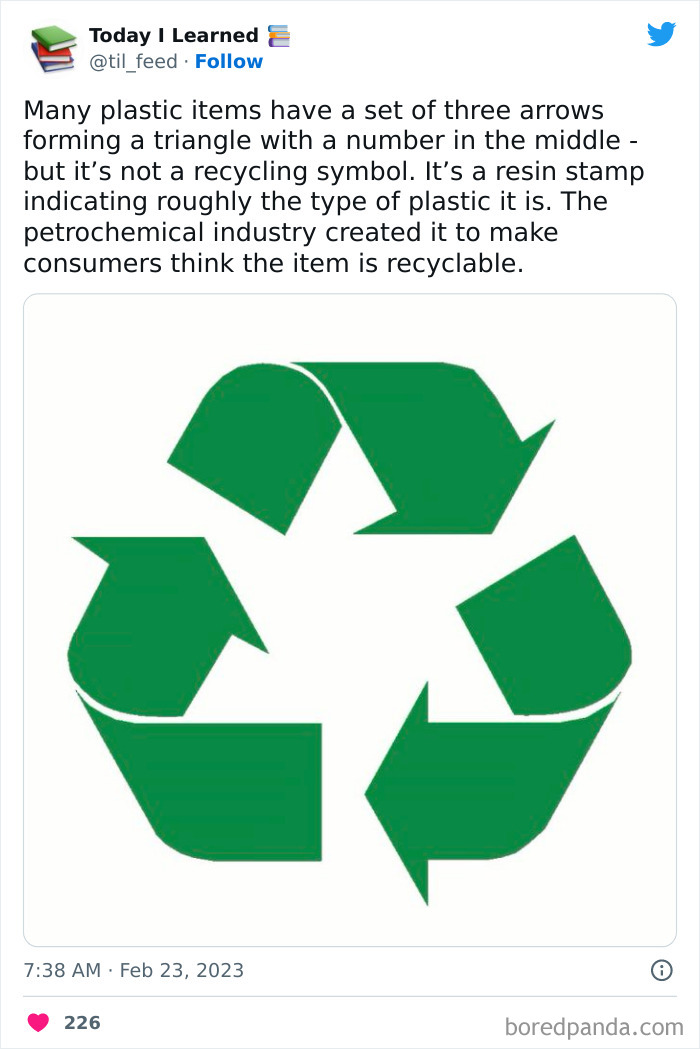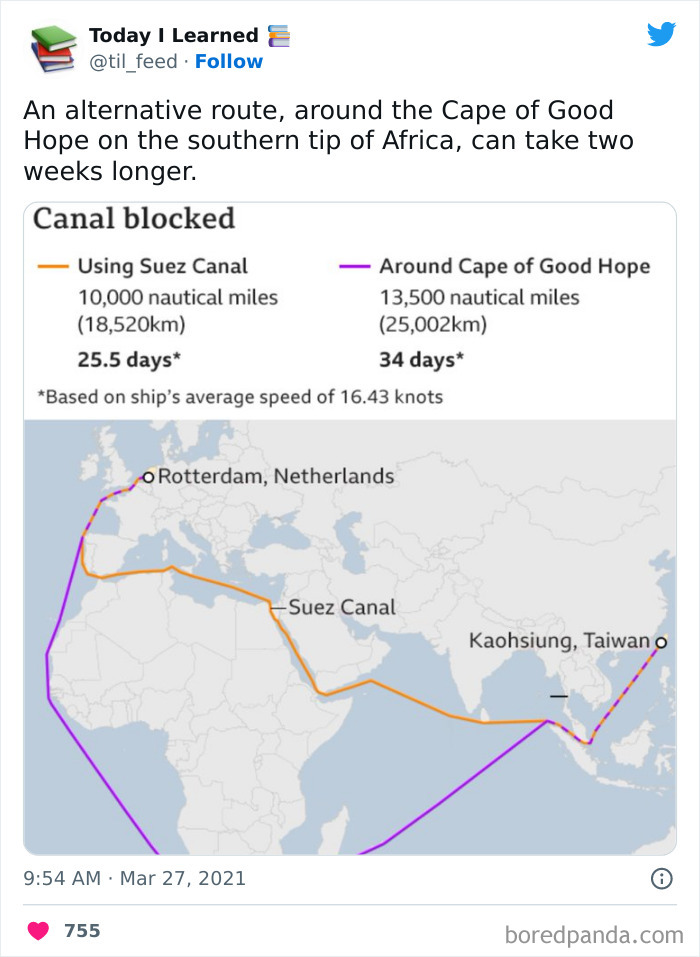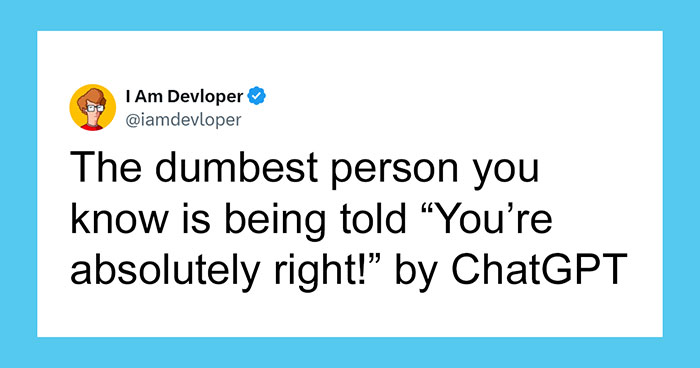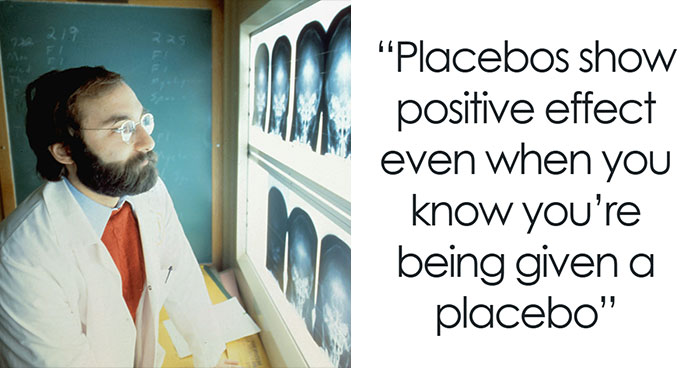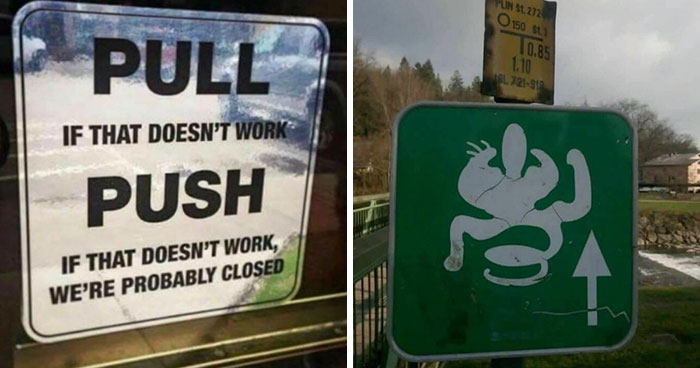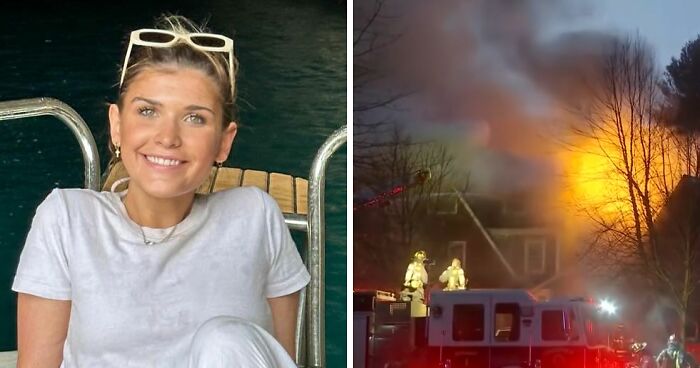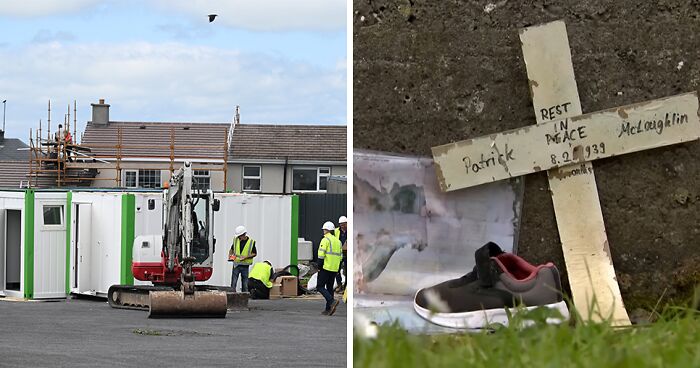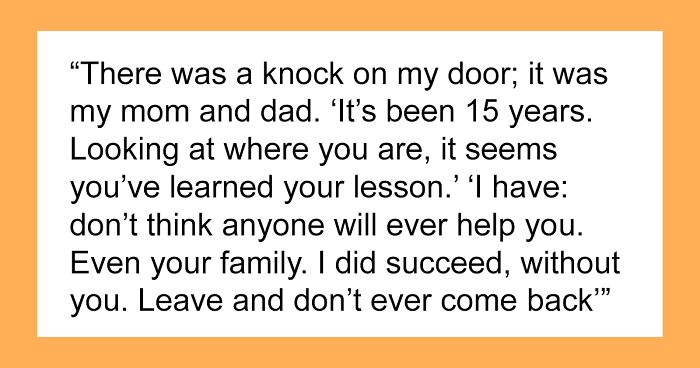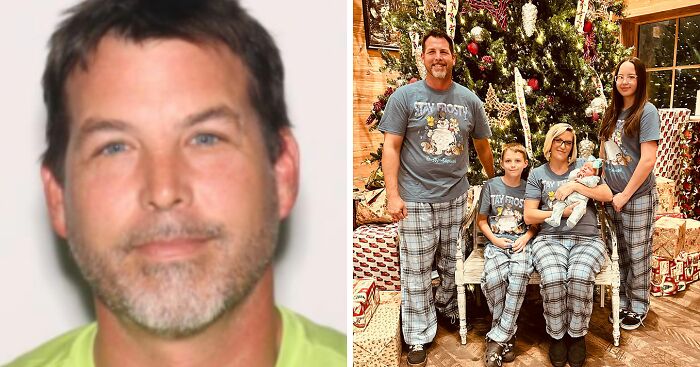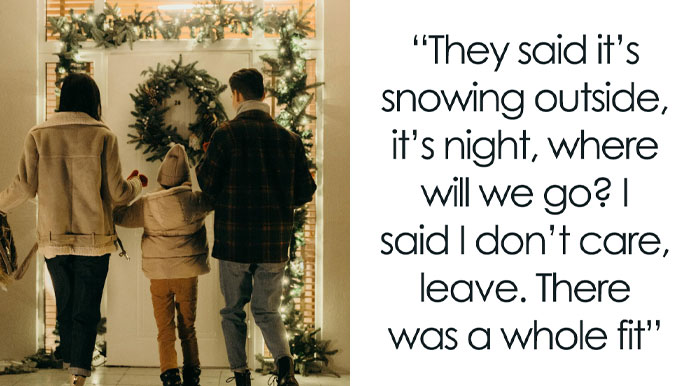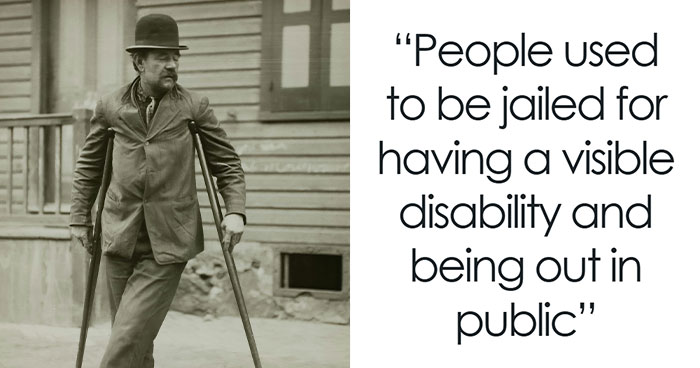No matter how educated you might be, no matter how many books you’ve read, it’s impossible to know everything that there is to know about the world. Naturally, you’ll end up with quite a few knowledge gaps. Gaps that you might not even be aware of! However, if you keep an open mind and are humble enough to admit that you don’t know everything, the internet can be a fantastic place to learn new things.
That’s where the ‘Today I Learned’ Twitter account, @til_feed, comes in. It’s a page with 33.6k followers that has been collecting and sharing interesting facts about the world, from science and psychology to history and nature, since late 2020. We’ve chosen the most intriguing facts to pique your interest, Pandas, so put on your thinking hats as you scroll down.
This post may include affiliate links.
It might feel embarrassing to realize that you don’t know as much about the world as you thought you did, but there’s nothing wrong with that! Human beings are limited, and there are tons of other things to do throughout the day than read thick encyclopedias and memorize trivia. Things like work, meeting up with the people we care about, exercise, long walks on the beach, doing pesky chores, sharing cat memes, and much, much more.
They also made a movie about it, called Hidden Figures! Everybody should watch it, it’s so good!
In other words, we all have a finite amount of time. We can’t spend every minute of it for the sake of storing knowledge in our noggins. However, if we accidentally become aware of massive knowledge gaps that we’d like to somehow fill, then it’s an opportunity for growth! We don’t know what your experience was like at school or college, but we remember how excited we were when we started delving into a topic that we knew very little about but felt passion for.
Learning can be a ton of fun, especially if you believe that the knowledge you’re gaining is going to improve your life somehow or that information is likely to have a very practical use. For example, learning a random language might be fun, and good exercise for your mind, but if you’ll need the language for your job or an upcoming trip, then you have that added little bit of motivation to keep you going when things get tough. The same goes for all subjects, whether it’s history, psychology, management, or anything else, really.
At the same time, if a specific subject doesn’t interest you at all or you might not think that it’ll prove to be much useful to you in the future, feel free to ignore it. We all have limited free time, so learning about biology or chemistry just to flex to your friends by dropping random fact bombs on them during dinner isn’t worth it. At the end of the day, you have to embrace the fact that you won’t know, well, everything.
Geoff Gourley, writing on Medium, suggests bridging your knowledge gaps by considering taking web courses on a specific subject. According to him, it’s important to use the knowledge you gain proactively, with hands-on activities if possible. Teaching someone else, once you’ve built up a decent knowledge base, can also help cement the information in your mind.
Meanwhile, there are tons of free resources out there on the internet, all it takes is some patience to find them and filter out the best from the fluff.
I learned from reading an unrelated book that Marie Curie’s documents are also said to be radioactive as well.
If you’re ever in a situation where someone publicly points out that you’re wrong about something, the first step is to try and stay calm. Don’t panic! Embrace the fact that everyone makes mistakes. You could, for instance, thank the person for correcting you. And if you show some signs of mild embarrassment, it can make you seem more down-to-earth and likable as a result. The important thing here is not to make a mountain out of a molehill: your mistake definitely wasn’t as big as you thought, and you shouldn’t let that embarrassment turn into shame.
The way that people consume news and information has changed very much with the spread of the internet and the rise of social media.
"People consume news from a much broader variety of sources, on a much wider set of platforms. We are awash in information and we are used to seeing it in small chunks," Lisa McLendon, Ph.D., the William Allen White Professor of Journalism and Mass Communications at the University of Kansas, previously explained to Bored Panda.
I live in Los Angeles. Traffic is terrible. Can't imagine what it would be like if it were 16% worse.
I remember living in Hanna Wyoming was it was -40F. Walking home from the bus stop after school, it started to get dark and we had double scarves wrapped around our mouths. Breathing in that ice cold air really hurts your lungs. I can’t imagine what -83F is like ! But I did read Coldfoot, Alaska got that cold before ! Forget that c**p…I’m going back to Las Cruces New Mexico next summer lol
As a result the format of the news changes, as audiences begin to appreciate brevity more. As a result, some outlets might prioritize engagement over in-depth reporting.
"News outlets know this and have adapted headlines to catch people’s eyes and presentation to keep the audiences engaged. For example, if you look at how news is presented on a platform like Instagram, it’s presented visually in a short video or series of images so people can quickly get the main point. Most of these changes have happened to optimize speed and engagement, not depth," the professor told us via email earlier.
But on the bright side, you planted more trees and helped the environment!
“Depth is crucial for certain types of news stories, ones that aren’t easily summarized in a quick-hit format but nonetheless have great impact on people’s lives. Questions and creativity can help journalists stay motivated to delve deeper on a longer, more time-consuming story," the communications expert told Bored Panda.
She stressed that how the information or news is presented can drastically affect how engaged the audience is. "Usually this is not one big, long block of text—it may include photos, videos, maps, graphics, even interactive elements like a quiz,” she said that reporters are challenged to find more and more creative ways to present their stories.
I grew up calling them Lego bricks and Lego parts. The US plural use as a noun sounds weird and strangely childish to me. I've never corrected it though. It seems like it's engrained in the US psyche.
Had a Danish exchange student here in US. They burn most garbage(some kind of stack cleaning tech to reduce pollutants), and use the heat to power steam boilers for home heat.
Kinda old news this one. It's very well known the national grid vary productivity around TV viewing habits, especially sport. It used to be the soap operas as well until online streaming meant you can catch up whenever.
So what did I’m you think their official title is? Space Olfactory Specialist . Come on give us your ideas.
I was reading about this, it's amazing how potent the smell is, they put very little in there and it still smells strong.
There is an extremely rare condition called C**A, where you completely lose your sense of pain. While it may seem cool, it also means you lose your sense of smell. A man diagnosed with C**A once reported that when he invited his friend over for a car ride, his friend smelt gas, something the man had never noticed (because he couldn’t smell). Luckily, they were able to safely fix the problem, or else who knows what would have happened!
Load More Replies...I read about this…. So many children lost their lives and no one could detect the gas leak. Now they added the chemical that alerts you as to when there is a leak.
Load More Replies...And in some countries, they use different scents. Like, if you're in Russia and smell roses, don't light a match.
There was a school explosion in the thirties in Texas. Nearly three hundred were killed. They had been using gas to heat the building. It led to the addition of the gas odor.
I was going to comment that I learned this from Ross!! 🤣
Load More Replies...The odor is designed to be sickening in high concentrations, so before the gas becomes concentrated enough to kill, you get sick and will flee the area.
and it incidentally makes turkey vultures great leak identifiers for gas pipelines because they also detect their lunch (carrion) by the mercaptan gas given off by decaying animals https://www.hitchcockcenter.org/earth-matters/turkey-vultures-waste-not-want-not/
this was done after a school explosion in texas in the 1930s when a gas leak led to an explosion because no one knew there was a leak. Interestingly right after Congress started a committee to come up with a solution, after a few months congress shut d own the committee because within 48 hours of the incident the Gas and Oil industry already began to a*s the rotten egg smell we know today, and congress realized it was easier to just adopt what the indistry was doing, rather than an expensive committee
Fun fact if you live near an injection site they will tell you the lines into your house aren't leaking, you're only smelling the injection site. Until you mention that the puddles in your yard are bubbling. That was a fun conversation, got a whole lot more fun when they realized there really was a problem, 😂
Load More Replies...Chlorine is also odourless, the smell associated with pools arises when urea reacts with the chlorine in the water.
And for those that don't know, the smell is rotten eggs. So if you ever smell rotten eggs around your house, call your gas supplier.
When Odourless Gas was introduced into Australia, I could smell it, When they altered it to give it an odour, It smelled even worse, Even today, I cannot walk into a house that has this so called Natural Gas, the smell is horrific,
This came about because of the New London TX school explosion in 1937 that killed over 300 people, basically wiping out an entire generation in that town. There are YouTube visdeos that tell the story. Also, this was the first major news story covered by Walter Cronkite.
that's good as there are many gas leaks that could go undetected. Not my sister's though.
The technical term is a "Stenching agent". They're used in a variety of things for basically the same reason. The also have a somewhat similar strategy with stuff that can be ingested. In that case it's called a "Bittering agent" and it's used to stop people (or animals) from chewing or eating something that might poison them.
Back in the 1989s (or early 90s), National Geographic magazine included a scratch & sniff odor test in one of their issues. It revealed that something like 30% of people could not smell the odor added to natural gas. The scent was supposed to be changed. I don't know whether that happened.
A friend had no sense of smell due to a childhood disease. He was always given the smelly jobs in uni, like working with formaldehyde.
And it started when a school in Texas blew up because nobody knew the odorless gas was building up under the floor
They made a short film in 2013 using atoms as well https://m.youtube.com/watch?v=oSCX78-8-q0
No, no no! Canada saved the hostages, our US embassy workers. The CIA had very little to do with it. The movie Argo assigns all the heroics done by Canada to Americans. It's wrong.
Well now I just found a prospective place to live… I’ll wave at y’all from my cruise ship
Have you heard of the Chernobyl Babushkas? They were your friendly neighborhood "I-was-born-here-I-will-die-here." There's about a hundred of them living in the exclusion zone, and they all maintain a strong sisterhood. Their really old, and they say that their thriving. You ever stop to think that maybe Nuclear energy isn't all that bad? I mean, Chernobyl seems to be thriving!
I don’t wanna say that you should steal $71.6 million but that plan was so ingenious and they pulled it off so I kinda say they deserve all the money. (Not literally tho.)
I can't imagine how lonely and awesome that would be, if they had a conscious.
Now go google Apple's "sueme" sound. Soothing and a funny story
A sugar cube of a neutron star weighs a few trillion kilograms less than Mount Everest
So the green Atlantic Ocean water is thicker than the blue Pacific Ocean water?
Seriously? It took them that long to figure out that flying things can go away when the weather is bad?
People probably underestimate Africa’s size because of the most common map design(I forgot what it was called) that has unevenly sized continents due to the equator not being in the center. An accurate map appears to be slightly distorted, so the inaccurate one is more appealing to the eye.
Slightly off topic, but still regarding Mir; my daughter in law, grand daughter and I went down to the beach near us and saw Mir as its last orbit, low in the sky, took it towards the Pacific. That was sad; I remember it but they have probably forgotten it by now.
More aren't necessary as there are only 25 blimps around the world with only half of them in active service
Try and discern cold coffee being poured in a cup from hot coffe being poured in a cup by the sound it produces. If your hearing isn't compromised, you most likely can.
I live in wA state, and I believe the leaking waste is criminal. Humans are so destructive, it's pathetic 😢
This statement is a little misleading it makes it sound as if they spent it all on one plane. This probably typical of designing something that will be mass produced and needed to be reliable
They're all true, I read them on the internet. [ /s because it's needed too often ]
Load More Replies...They're all true, I read them on the internet. [ /s because it's needed too often ]
Load More Replies...
 Dark Mode
Dark Mode 

 No fees, cancel anytime
No fees, cancel anytime 






